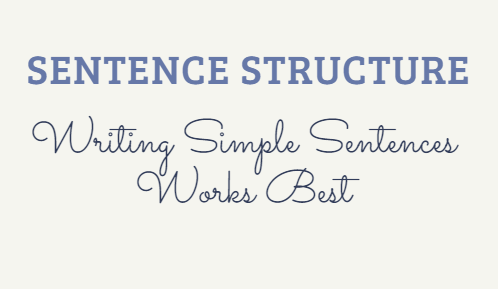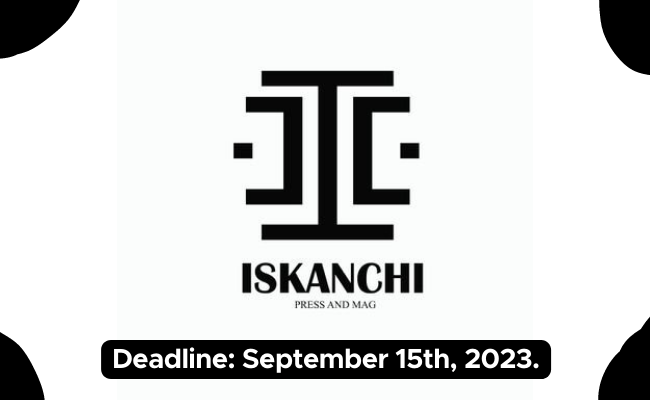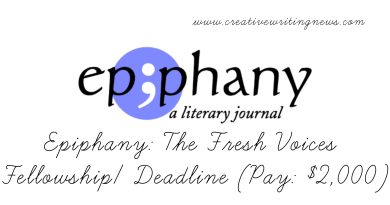Sentence Structure: Writing Simple Sentences Works Best
Sentence structure is important in writing. It plays a crucial role in conveying your ideas clearly and coherently to your audience.
Proper sentence structure helps ensure that your writing is grammatically correct and easy to understand.
Mastering simple sentences teaches you how to use effect.
Learning to write in simple sentences will help you capture the meaning you want—and not lose the power you want your words to have—and this will help you evolve from that to tackling complex sentences with great skill and efficiency.
Read: How To Write Content For Online Purposes
In your rewrites, as you get better, you will learn to merge several simple sentences into one complex one with amazing results and good flow. If you can punctuate properly, don’t mess up your tenses, and can keep your words simple and your expressions fresh, then you’re already a master.
Not easy to do, I tell you. Some of us agonize over several rewrites before we get there (probably because we didn’t learn the basics first).
After knowing what I now know about writing, I wondered what a Pulitzer Prize novel was like. What was their magic? Do the writers of these books have some kind of genius that I can’t reach? I had a look at Adam Johnson’s Orphan Master’s Son and Donna Tartt’s Gold Finch, two Pulitzer winners. And this is what I saw.
This is an excerpt from The Goldfinch (the very second sentence in the entire book).
“I’d been shut up in my hotel for more than a week, afraid to telephone anybody or go out; and my heart scrambled and floundered at even the most innocent noises: elevator bell, rattle of the minibar cart, even church clocks tolling the hour, de Westertoren, Krijtberg, a dark edge to the clangor, an inwrought fairy-tale sense of doom.”
(The text has been put in quotes to show that I am quoting a line from the book)
This is a very long sentences, a complex one, which needs to be understood in it’s simplest parts. You could even call this a merger of several simple sentences. The writer (Donna Tartt) used a semi colon, a colon and commas to join several simple sentences, punctuating properly. Let’s break down this sentence and look at the component simple sentences to see if anyone has more than 12 words. (I have put the word count in brackets)
I’d been shut up in my hotel for more than a week, (12)
afraid to telephone anybody or go out; (7)
and my heart scrambled and floundered at even the most innocent noises: (12) elevator bell, rattle of the minibar cart, even church clocks tolling the hour, de Westertoren, Krijtberg, a dark edge to the clangor, an inwrought fairy-tale sense of doom.
The longest part is the third part, which has a list that comes after a colon, and so we will count only up to the colon and leave out the list. The number of words in the three simple sentences that make up this complex sentence is 12, 7, and 12.
So Naipal’s rule for beginners is a good one for getting to write amazing sentences. Don’t take it as a hard-an-fast rule. If you have thirteen or fourteen words don’t fret. I think it’s a rough estimate.
Why not pick up The Orphan Mater’s Son and The Goldfinch and you’ll be amazed at the clear complex sentences that say a lot.
You should never overdo your writing with complex sentences. You should give breathers between them, use simpler ones between them. It’s better to write only simple sentences than only complex sentences. In the latter, the reader will keep slowing down to take it all in. You’ll notice that the previous sentence doesn’t exactly flow into the next.
So Naipal is right. He knows what he is talking about. Simple sentences help the flow of your work. Complex sentences show your skill as a writer. But don’t do too much showing off of your skill because you will lose good flow.
For those who care, here are Naipal’s rules for beginners in very short form (I’ve summarized them because I think there’s something in there for all writers, not just beginners.) My comments are between double asterisks.
Do not write long sentences. 10 to 12 words is enough. **Learn this, and you can merge them into beautiful complex sentences in your rewrites.**
Each sentence should make a clear statement. It should add to the statement that went before. A good paragraph is a series of clear, linked statements. **This talks about good or smooth flow.**
Do not use big words. The use of small words makes you think about what you are writing. Even difficult ideas can be broken into small words. **For me, any writer who can simplify a difficult idea shows he knows it well, and I marvel at his/her power of understanding.**
When building your sentence structure, never use words whose meanings you are unsure of. If you break this rule, you should look for other work. **LOOOOOL**
Final thought on Sentence Structure
The beginner should avoid using adjectives except those of color, size and number.**If you stick to this, you are likely to learn to SHOW and not TELL.** Use as few adverbs as possible. This encourages the writer to think of strong verbs, and strong verbs show while weak verbs joined with and adverb mostly tell. Great rule.
Avoid the abstract. Always go for the concrete. **make it clear; lose the poetry**
Every day, for six months at least, practise writing in this way.
Simple Works Best was written by Charles Opara. He writes prose, poetry and non-fiction.





